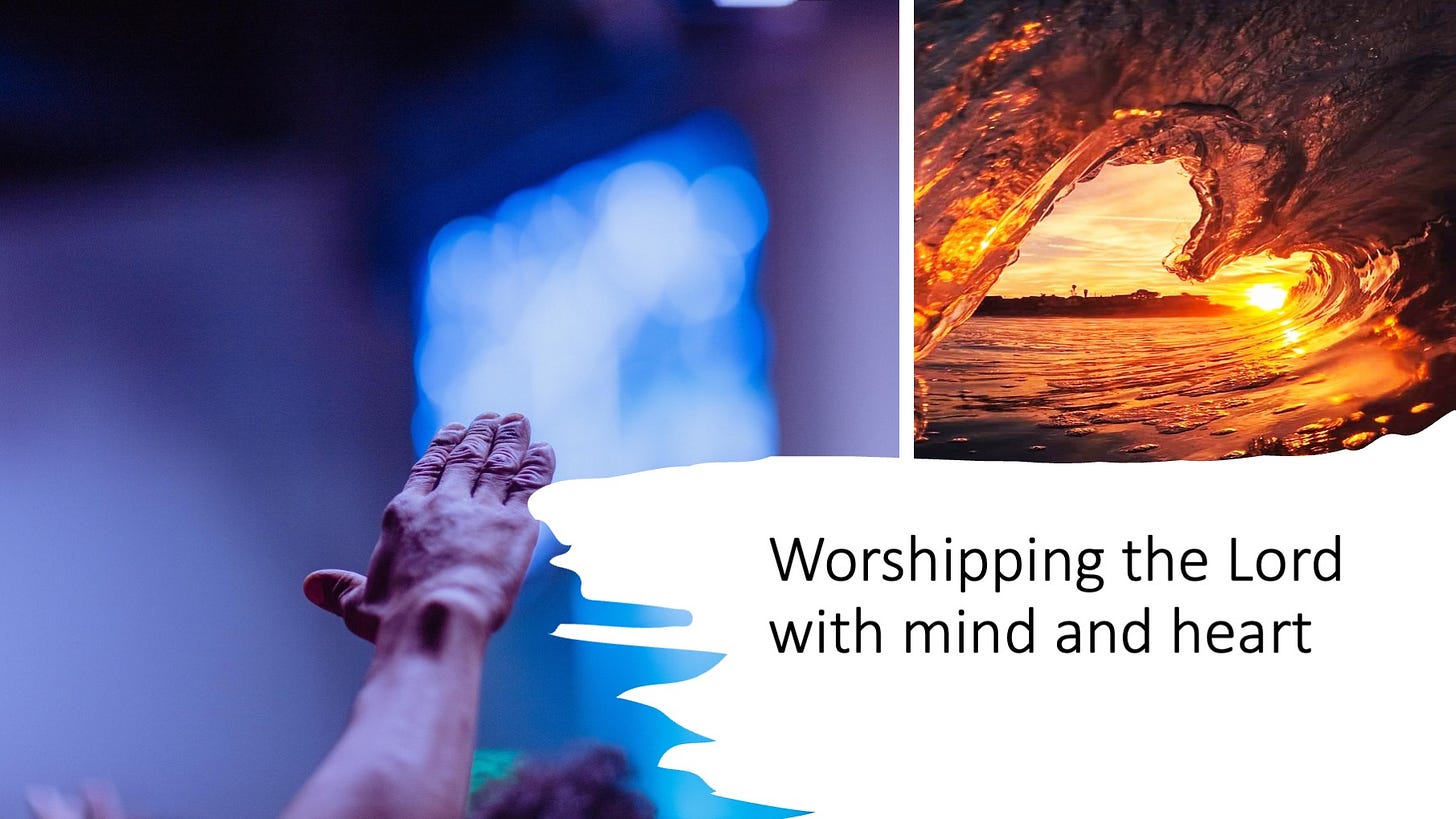Psalm 98:1, 3CD-6
Today, we continue to sing Psalm 98 started yesterday. That time, I mentioned that the Gospel of Jesus Christ can be considered as our new song. But, our liturgy is also a new song. And how do we sing that song?
Psalm 98 gives specific reasons for worshipping the Lord - his wondrous deeds. Those deeds refer to God’s divine intervention in Israel’s history. At the beginning of the second part of the Catholic Mass, known as the liturgy of the Eucharist, there is a conversation between the priest and the congregation. The priest calls everyone to “give thanks to the Lord, our God” and the congregation responds: “it is right and just”. Then, the priest addresses the Lord, directly: “It is truly right and just, our duty and our salvation, always and everywhere to give you thanks, Lord, holy Father, almighty and eternal God,
through Christ our Lord”. Then, depending on the season or celebration the reasons for our gratitude our being stated.
Psalm 98 invites us to joyful singing before the Lord, our King. But, the Eucharist celebrated in the West is often far from being joyful. Our liturgy has the substance of faith but it often lacks the enthusiasm that springs from faith. The same Eucharist, however, celebrated among African Catholics is full of “charismatic fire”. As one African bishop put it to his Western counterparts: “I do not say the Mass; I celebrate it”. That was also my experience while celebrating Sunday's Eucharist in East Timor. It was indeed a joyful celebration before our Lord Jesus Christ.
The instruments mentioned in the psalm are the harp or lyre, trumpets, and horn. Today, we use pipe organs, piano, guitar, flute, and drums, to mention but a few. Those musical instruments can create an atmosphere of heaven upon earth. That was my experience while participating in a three-day Charismatic renewal in the shrine of our Lady, known as the Black Madonna, in Poland. The music was so fantastic and the lyrics so touching that, while singing in front of the Blessed Sacrament, I felt as if one of the petitions of “Our Father” came true: “on earth, as in heaven”.
We are both intellectual and emotional beings, and Psalm 98 teaches us that intellect and emotions have to be incorporated into worshipping our God. Our worship should be meaningful and enthusiastic, filled with substance and joy. If it is not, then we have to ask why.




